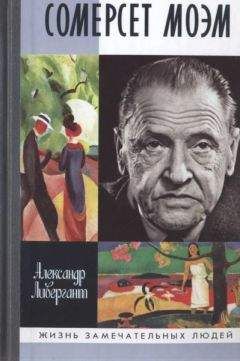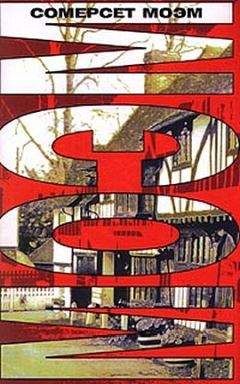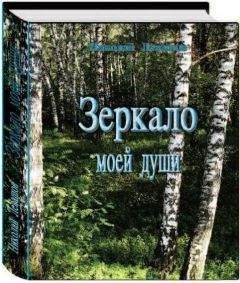Уильям Моэм - Мистер Всезнайка. Рассказы
wrath [rOT], passionate ['pxSqnIt]
Mrs. Tower gave a little sniff.
"And have you arranged with the admiral that if you want your liberty neither should put any hindrance in the way of the other?"
"I suggested it," Jane answered with composure. "But the admiral says he knows a good thing when he sees it and he won’t want to marry anyone else, and if anyone wants to marry me — he has eight twelve — inch guns on his flagship and he’ll discuss the matter at short range." She gave us a look through her eyeglass which even the fear of Mrs. Tower’s wrath could not prevent me from laughing at. "I think the admiral’s a very passionate man."
Mrs. Tower indeed gave me an angry frown (миссис Тауэр действительно бросила на меня сердитый взгляд).
"I never thought you funny (я никогда не считала тебя забавной), Jane," she said, "I never understood why people laughed at the things you said (я никогда не понимала, почему люди смеются над тем, что ты говоришь)."
"I never thought I was funny myself (я и сама никогда не считала себя забавной), Marion," smiled Jane, showing her bright, regular teeth (улыбнулась Джейн, показывая свои сверкающие, ровные зубы). "I am glad to leave London before too many people come round to our opinion (я рада, что уезжаю из Лондона до того, как слишком много людей согласятся с нашим мнением; to come round — объезжать, обходить; соглашаться)."
"I wish you’d tell me the secret of your astonishing success (жаль, что вы не раскроете мне секрет вашего удивительного успеха; to astonish — изумлять, поражать, удивлять)," I said.
She turned to me with that bland (она повернулась ко мне с тем мягким), homely look I knew so well (простым взглядом, который я так хорошо знал).
frown [fraun], astonishing [qs'tOnISIN]
Mrs. Tower indeed gave me an angry frown.
"I never thought you funny, Jane," she said, "I never understood why people laughed at the things you said."
"I never thought I was funny myself, Marion," smiled Jane, showing her bright, regular teeth. "I am glad to leave London before too many people come round to our opinion."
"I wish you’d tell me the secret of your astonishing success," I said.
She turned to me with that bland, homely look I knew so well.
"You know, when I married Gilbert (знаете, когда я вышла замуж за Гилберта) and settled in London (и обосновалась в Лондоне) and people began to laugh at what I said (и люди начали смеяться над тем, что я говорила) no one was more surprised than I was (никто не был удивлен /этим/ больше, чем я /сама/). I’d said the same things for thirty years (я говорила это: «те же самые вещи» на протяжении тридцати лет) and no one ever saw anything to laugh at (и никто никогда не видел = не находил /в них/, над чем смеяться). I thought it must be my clothes (я, было, подумала, что это из-за моей одежды) or my bobbed hair (или моих коротко стриженных волос; bob — связка, пучок; гроздь /листьев, цветов, фруктов и т. п./; короткая круглая стрижка /у женщин/;tobob — коротко стричь, делать короткую круглую прическу) or my eyeglass (или моего монокля). Then I discovered it was because I spoke the truth (потом я поняла, что это оттого, что я говорила правду). It was so unusual that people thought it humorous (это было так необычно, что люди считали это остроумным; usual — обыкновенный, обычный). One of these days someone else will discover the secret (однажды кто-нибудь раскроет этот секрет), and when people habitually tell the truth of course there’ll be nothing funny in it (и когда люди будут всегда: «привычно» говорить правду, в этом, конечно, /уже/ не будет ничего смешного)."
"And why am I the only person not to think it funny (а почему я единственный человек, которому не смешно: «который не считает это смешным»)?" asked Mrs. Tower.
Jane hesitated a little (Джейн немного помедлила; tohesitate— колебаться; сомневаться, не решаться; медлить, находиться в нерешительности /на какой-то короткий промежуток времени/) as though she were honestly searching for a satisfactory explanation (будто честно искала удовлетворительное объяснение; toexplain— объяснять).
"Perhaps you don’t know the truth when you see it, Marion dear (возможно, ты не узнаешь правды, когда видишь ее, Марион, дорогая)," she answered in her mild good-natured way (ответила она в своей мягкой добродушной манере).
It certainly gave her the last word (последнее слово, конечно, оказалось за ней: «это определенно дало ей последнее слово»). I felt that Jane would always have the last word (мне показалось: «я почувствовал», что за Джейн всегда будет последнее слово). She was priceless (она была бесподобна).
truth [trHT], hesitate ['hezIteIt], explanation [eksplq'neISn]
"You know, when I married Gilbert and settled in London and people began to laugh at what I said no one was more surprised than I was. I’d said the same things for thirty years and no one ever saw anything to laugh at. I thought it must be my clothes or my bobbed hair or my eyeglass. Then I discovered it was because I spoke the truth. It was so unusual that people thought it humorous. One of these days someone else will discover the secret, and when people habitually tell the truth of course there’ll be nothing funny in it."
"And why am I the only person not to think it funny?" asked Mrs. Tower.
Jane hesitated a little as though she were honestly searching for a satisfactory explanation.
"Perhaps you don’t know the truth when you see it, Marion dear," she answered in her mild good-natured way.
It certainly gave her the last word. I felt that Jane would always have the last word. She was priceless.
The Lotus Eater(Праздный мечтатель; Lotus Eater— лотофаг, человек, не помнящий прошлого; праздный мечтатель, человек, оторванный от жизни)
Most people, the vast majority in fact (большинство людей, по сути, подавляющее большинство; vast— обширный, огромный; многочисленный;fact— факт, событие; реальность, действительность), lead the lives that circumstances have thrust upon them (ведут ту жизнь, которую им навязали обстоятельства; tolead— вести, показывать путь; вести /какой-либо образ жизни/;tothrust— толкать, тыкать; навязывать), and though some repine, looking upon themselves as round pegs in square holes (и, хотя некоторые сетуют, считают себя /находящимися/ не на своем месте: «круглыми колышками в квадратных отверстиях»; tolookuponsmb.assmb. — считать кого-либо кем-либо), and think that if things had been different (и думают, что если бы обстоятельства сложились по-другому; thing/s/ — вещь, предмет; обстоятельства, обстановка) they might have made a much better showing (они смогли бы добиться гораздо большего; showing— показ, демонстрация; /производимое/ впечатление), the greater part accept their lot (большая же часть принимает свой жребий; toaccept— принимать, брать /предложенное/; принимать как неизбежное, мириться /с чем-либо/), if not with serenity, at all events with resignation (если и не со спокойствием, то, во всяком случае, со смирением; resignation— покорность, смирение;serenity— прозрачность, ясность /неба, воздуха/; безмятежность, спокойствие /о душевном состоянии/).
majority [mq'dZOrItI], circumstance ['sWkqmstxns, 'sWkqmstqns], serenity [sI'renItI], resignation ["rezIg'neIS(q)n]
Most people, the vast majority in fact, lead the lives that circumstances have thrust upon them, and though some repine, looking upon themselves as round pegs in square holes, and think that if things had been different they might have made a much better showing, the greater part accept their lot, if not with serenity, at all events with resignation.
They are like train-cars travelling forever on the selfsame rails (они подобны трамваям, которые едут вечно по одним и тем же рельсам; to travel — путешествовать; ездить, ехать, rail/s/ —рельс, железнаядорога). They go backwards and forwards, backwards and forwards, inevitably (они едут назад и вперед, неизменно, назад и вперед; inevitable — неизбежный; разг. неизменный, постоянный), till they can go no longer (до тех пор, пока они уже не могут больше ехать) and then are sold as scrap-iron (и затем их продают на металлолом; scrap — кусочек, клочок; металлическийлом, iron — железо, scrap iron — ломчерныхметаллов). It is not often that you find a man (и не так часто встречаешь человека; to find — находить, отыскивать; наткнуться, встретиться) who has boldly taken the course of his life into his own hands (который смело взял ход своей жизни в свои собственные руки; course — курс, направление; ход, течение). When you do, it is worth while having a good look at him (а когда встречаешь, стоит хорошенько к нему приглядеться; worth— стоящий, имеющий ценность; стоящий /чего-либо/, имеющий значение, while— время; затраченные усилия и время).
inevitably [I'nevItqblI], scrap iron ["skrxp'aIqn], course [kO: s]
They are like train-cars travelling forever on the selfsame rails. They go backwards and forwards, backwards and forwards, inevitably, till they can go no longer and then are sold as scrap-iron. It is not often that you find a man who has boldly taken the course of his life into his own hands. When you do, it is worth while having a good look at him.
That was why I was curious to meet Thomas Wilson (вот почему мне было любопытно познакомиться с Томасом Уилсоном; curious — любознательный; любопытный; to meet — встречаться; знакомиться). It was an interesting and a bold thing he had done (он поступил интересно и смело: «это был интересный и смелый поступок, который он совершил»; thing— вещь, предмет; действие, поступок). Of course the end was not yet and until the experiment was concluded (конечно, конец еще не наступил, а до тех пор, пока эксперимент не был закончен) it was impossible to call it successful (было невозможно назвать его успешным; tocall— кричать; называть, звать). But from what I had heard it seemed he must be an odd sort of fellow (но /исходя/ из того, что я слышал, казалось, что он, должно быть, довольно необычный человек; odd— нечетный; странный, необычный, эксцентричный, sort— вид, род, сорт) and I thought I should like to know him (и я подумал, что мне бы хотелось познакомиться с ним; toknow— знать, иметь представление; быть знакомым /с кем-либо/, познакомиться /с кем-либо/).
curious ['kju(q)rIqs], experiment [Ik'sperImqnt], successful [sqk'sesf(q)l]
That was why I was curious to meet Thomas Wilson. It was an interesting and a bold thing he had done. Of course the end was not yet and until the experiment was concluded it was impossible to call it successful. But from what I had heard it seemed he must be an odd sort of fellow and I thought I should like to know him.
I had been told he was reserved (мне сказали, что он был замкнут; reserved — сдержанный, замкнутый), but I had a notion (но я держался того мнения; notion — понятие, представление; взгляд, мнение, точказрения) that with patience and tact I could persuade him to confide in me (что терпением и тактом я смог бы убедить его довериться мне). I wanted to hear the facts from his own lips (мне хотелось услышать его историю: «факты» из его собственных уст). People exaggerate, they love to romanticize (люди преувеличивают, им нравится романтизировать; toromanticize— писать в романтическом духе; представлять в идеализированном виде), and I was quite prepared to discover (и я был вполне готов обнаружить; todiscover— делать открытие; обнаруживать, находить) that his story was not nearly so singular as I had been led to believe (что его история была не настолько исключительной/необычной, как меня уверили: «как мне дали основание верить»; tolead— вести, показывать путь; приводить /к чему-либо/, быть причиной /чего-либо/,tobelieve— верить; думать, полагать, считать).




